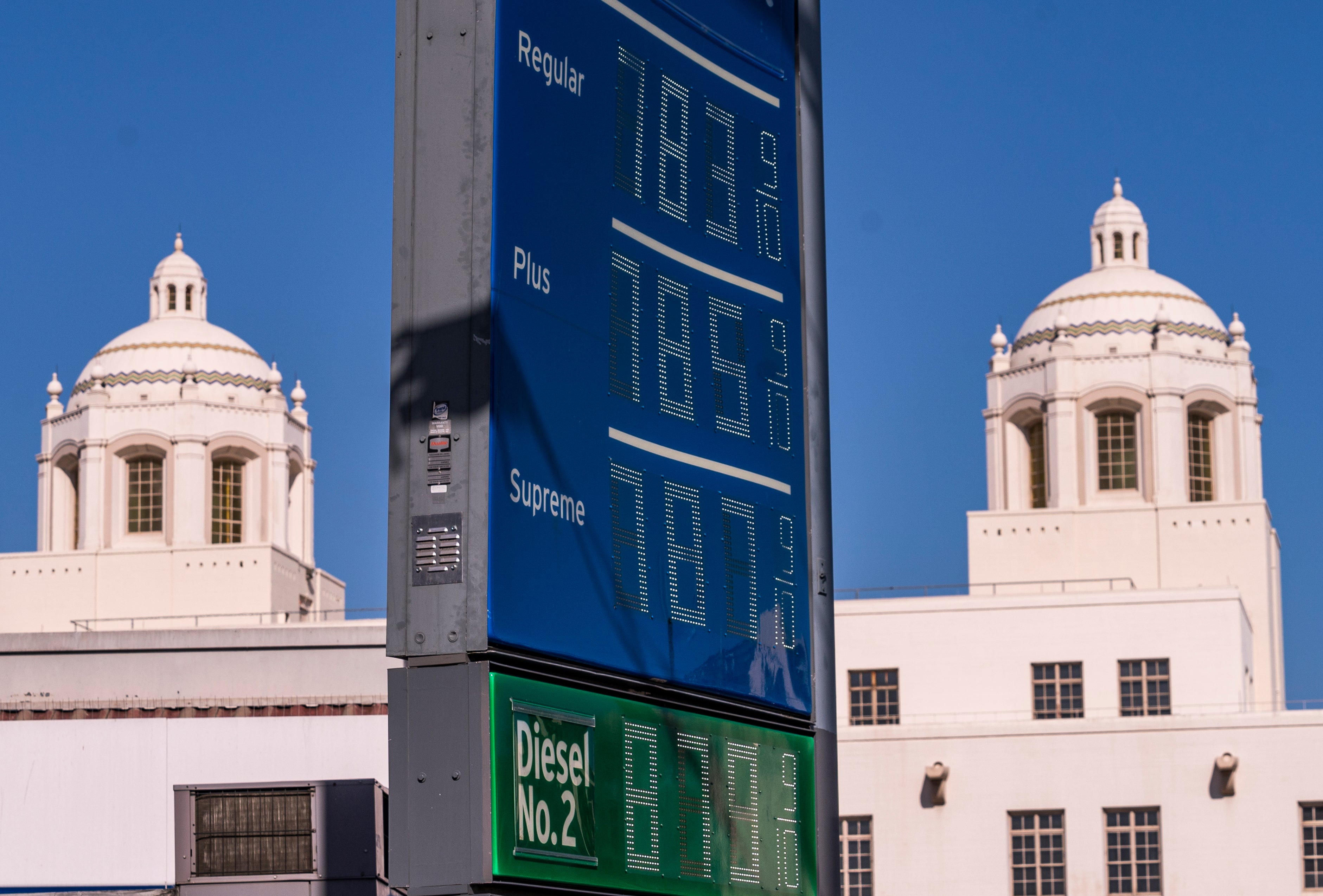Your support helps us to tell the story
From reproductive rights to climate change to Big Tech, The Independent is on the ground when the story is developing. Whether it's investigating the financials of Elon Musk's pro-Trump PAC or producing our latest documentary, 'The A Word', which shines a light on the American women fighting for reproductive rights, we know how important it is to parse out the facts from the messaging.
At such a critical moment in US history, we need reporters on the ground. Your donation allows us to keep sending journalists to speak to both sides of the story.
The Independent is trusted by Americans across the entire political spectrum. And unlike many other quality news outlets, we choose not to lock Americans out of our reporting and analysis with paywalls. We believe quality journalism should be available to everyone, paid for by those who can afford it.
Your support makes all the difference.The price of gasoline has continued to soar across the US, with prices on the precipice of setting a Memorial Day record.
At nine California stations, the price of gas is now higher than the federal minimum wage. According to Patrick De Haan of GasBuddy, two stations in Los Angeles and one outside San Francisco are among the locations where a gallon of gas is now at least $7.25.
California, which has long had relatively high gas prices, also has a minimum wage double the federal minimum. California workers make at least $14.50 per hour, with some cities like Berkeley, Emeryville, and Los Altos setting the minimum wage beyond $15 per hour.
Other stations at which the price of gas has risen above $7.25 include three in Lee Vining, two in Bridgeport, and one in Shoeshine. The price of a gallon at the Chevron station at 901 N. Alameda St. in Los Angeles is now $7.83.
Prices may be lower outside of California, but the minimum wage often is too. The federal minimum wage has not been raised since it was set at $7.25 in 2009, making this longest the federal government has gone since the minimum wage was established without raising it. Given inflation — which is particularly acute right now — the value of that wage has fallen significantly since it was raised.
That lack of action at the federal level has cost workers an extraordinary amount of money. According to the Economic Policy Institute, had the federal government increased the minimum wage in line with productivity growth since 1968, it would be $22 today.
While a number of states and municipalities have taken it upon themselves to raise the wage, often to the $15 standard endorsed by a number of progressive activists and elected officials, 20 states still have a $7.25 minimum.
That means that the increase in gas prices is taking a dent of many workers’ paychecks. Ed Yardeni of the Wall Street Journal estimated that the typical US household is on track to spend $4,800 on gasoline this year — a $2,000 increase over last year.
That financial burden on workers is unlikely to abate any time soon. A JP Morgan analyst has projected that the average price of a gallon of gasoline could rise to $6.20 by August, well above the current mark of $4.60.
Some experts blame a decrease in oil production during the pandemic and lingering supply chain issues exacerbated by the fallout from Russia’s invasion of Ukraine for the steep climb in the price of gas, while others have blamed the oil and gas industry for price gouging.
There is no question that industry leaders have profited from the high prices: according to an analysis from Accountable.US, the top 21 oil and gas companies in the US raked in $41 billion in profit during the first quarter of the year — a marked increase from last year.
A new Democratic-led bill in Congress, the Consumer Fuel Price Gouging Prevention Act, is meant to address that concern. The bill, which passed the House of Representatives and is now being considered by the Senate, would allow the president to declare an energy emergency and ban the sale of consumer fuel at “unconscionably excessive” prices among other provisions aimed at addressing price gouging in the industry.
Not a single Republican voted for the bill in the House, and it is unknown whether conservative Democratic senators like Joe Manchin of West Virginia are supportive.

Join our commenting forum
Join thought-provoking conversations, follow other Independent readers and see their replies
Comments